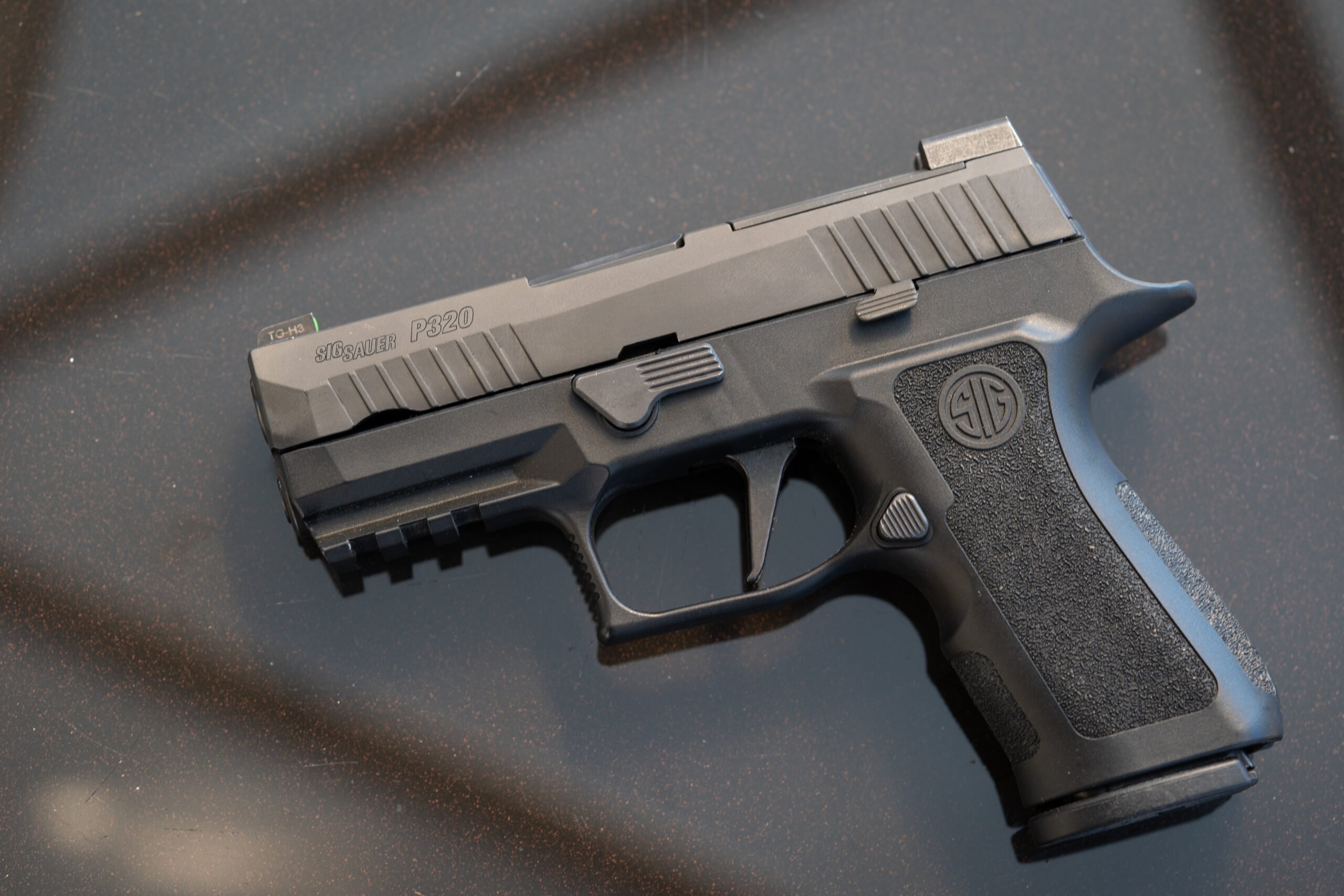A new investigation from The Trace and The Washington Post documenting allegations that one of America’s most popular pistols fires without the user pulling the trigger prompted renewed calls to repeal a decades-old amendment that exempts firearms from the oversight of the Consumer Product Safety Commission.
“Why are guns not regulated with the same fervor that faulty cribs or unsafe biking helmets are?” said Dick Durbin, a Democratic senator from Illinois, in a statement. “If CPSC has the authority to regulate toy guns, we should be pushing for the regulation of guns that can and do fire bullets without the trigger being pulled.”
The investigation, published on April 11, revealed an alarming pattern involving the SIG Sauer P320: More than 100 people say the gun fired when they didn’t pull the trigger, resulting in at least 80 injuries.
SIG Sauer insists that its product is safe and has not issued a recall. The company attributed discharges involving the P320 to user error. “[I]mproper or unsafe handling is one of the most common causes of unintentional discharges,” SIG Sauer wrote in response to questions.
Since its introduction to the commercial market nearly a decade ago, SIG Sauer’s P320 has been sold to hundreds of thousands of civilians and has been used by officers at more than 1,000 enforcement agencies. But despite widespread claims that the gun has the propensity to fire without its user pulling the trigger, federal regulators are powerless to act.
Guns are one of the only products exempt from federal consumer product safety regulations. No agency can investigate alleged malfunctions, set mandatory manufacturing or design standards, or recall models found to be defective. The gap in oversight traces back to an amendment passed by Congress during the CPSC’s formation in 1972. The amendment was introduced by Michigan Representative John Dingell, a Democrat, who sat on the board of the National Rifle Association.
Now, Congressional Democrats say they are making a renewed push to repeal the exemption.
Robin Kelly, a representative from Illinois, said she plans to reintroduce the Firearms Safety Act, and Michigan Representative Debbie Dingell, whose late husband’s legislation created the exemption more than four decades ago, said she plans to reintroduce the Defective Firearms Protection Act. Both bills would alter the CPSC’s charter to include pistols, revolvers, and other firearms in the definition of “consumer product,” enabling the agency to issue safety standards for guns and to impose recalls of hazardous or defective models.
Both bills have been introduced in Congress multiple times in the past, but they’ve received little support.
“We need to be able to protect people from this unnecessary danger,” Dingell said.
Several Democrats told The Trace and The Post that they would back the bills once they’re introduced in Congress.
Mark DeSaulnier, a representative from California, and Dwight Evans, a representative from Pennsylvania, said it’s the CPSC’s duty to protect consumers from unsafe or malfunctioning products. DeSaulnier called it “outrageous” that a federal agency like the CPSC had its oversight powers restricted and pledged to support Kelly’s Firearms Safety Act, which he cosponsored in 2021. Evans said that he, too, would support such legislation.
Raúl Grijalva, a representative from Arizona, has not cosponsored any previous attempts to grant the CPSC regulatory authority over firearms. But in a phone call, he said that asking the firearms industry to regulate itself is a “fox guarding the henhouse situation.”
“These companies care about profit more than they care about the safety of their consumers,” he added.
Katie Porter, a representative from California, posted a link to The Trace and The Post’s reporting on Twitter and demanded that Congress take action. “Regulators are empowered to recall defective products when they cause harm, with one major exception — guns,” she wrote. “There are no federal safety standards for guns even when design flaws seriously hurt people. Congress must end this immunity for gun manufacturers.”
Interest in legislation that would make such a change was not limited to Democrats in Congress. Chuck Wexler, the executive director of the Police Executive Research Forum, a law enforcement think tank, told The Trace that reporting on the P320 exposed a major gap in regulation that threatens the safety of law enforcement officers across the country.
“There needs to be federal oversight not only before a weapon or piece of equipment is released but also to determine what happens when it’s being used,” Wexler said. “It’s not enough to evaluate law enforcement equipment prior to its use. You have to take a step further and say, ‘What does its use look like when it’s disseminated throughout the law enforcement community? Is it safe?’”
Even if SIG Sauer’s claims about the P320 are true, Wexler said, and those who have experienced unintentional firings mishandled their weapons in some way, causing the triggers to be pulled inadvertently, a responsible manufacturer would notify the public about the number of incidents and provide guidance about how to safely handle the gun.
“If I’m the manufacturer,” he said, “and I’m learning of these incidents, whether it’s the operator not using the equipment properly or whether it’s a shortcoming of the equipment, you owe the consumer to educate them.”

